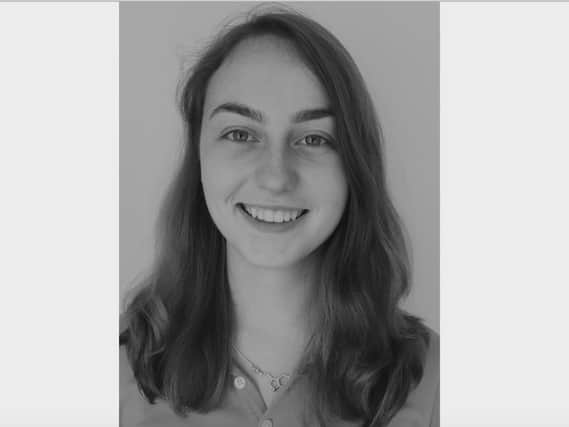Ex-Aylesbury High School pupils wins best paper at international health informatics conference


Charlotte’s just finishing her PhD and during 2020 had been working her way towards participation at the AMIA (American Medical Informatics Association) conference in Chicago.
Ultimately the conference was held virtually and she was the only UK representative.
Advertisement
Advertisement
The paper, ‘Do traditional BMI categories capture future obesity? A comparison with trajectories of BMI and incidence of cancer,’ was chosen from over 71 submissions at the American Medical Informatics Association (AMIA) virtual conference in November.
Charlottes investigation and research examined the link between BMI (body mass index) and the link with obesity related cancers.
Her paper focused on how a person's risk of these cancers can differ depending on when and how fast they put on weight over their life.
Martin Watson, Charlotte's father said he was 'immensely proud' of her daughters work in such difficult circumstances during lockdown.
Advertisement
Advertisement
Speaking to the Manchester Biomedical Research Centre, charlotte said: “Even though it had to shift online this year, it was a real privilege to present my work at the AMIA conference and to so many highly esteemed academics who conduct cutting edge research in the health field.
"There were so many strong research papers from other students, and I was thrilled to make it to the final eight shortlisted, let alone to have won best student paper. It really is a big honour, and something I’m massively proud of as my PhD comes to an end."
Charlotte examined BMI data for almost half a million Americans gathered over a ten year period, from 1995 to 2005.
She looked at whether they developed cancer related to their obesity.
Advertisement
Advertisement
Using a computer algorithm, she found several distinct groups based on their pattern of weight gain throughout their lifetime and how this weight change impacted their risk of an obesity related cancer.
These ranged from people who maintained a healthy weight, were first recorded as overweight but lost weight, and those who consistently gained weight.
Speaking to the MBRC, she added: "Using algorithms and machine learning allows you to interrogate large amounts of complex data much quicker than humans could manage, as well as spot hidden trends and relationships between different data and characteristics.
“Normally studies using BMI as a risk predictor only use a single measure, meaning BMI is only recorded once for that person and used to estimate how body fatness affects cancer risk. However, I was able to use data with multiple measures, which allowed us to identify distinct groups showing how risk changed depending how people lost or gained weight over time.
Advertisement
Advertisement
“The results showed that people who had consistently gained weight or had been overweight or obese for longer were the most likely to develop cancer. However, it also showed people who had rapidly lost or gained weight, meaning one of their BMI scores was very different from the last, were still at higher risk, which is something studies that use a single BMI measure would miss.
"Although more research is needed to be able to apply the findings to a whole population, this could still help public health professionals to identify exactly which kinds of people would benefit the most from treatment and support around diet and exercise."
Well done Charlotte!